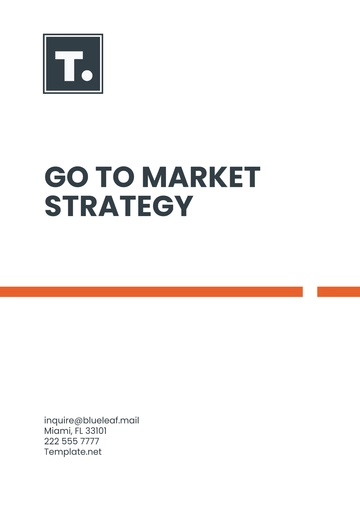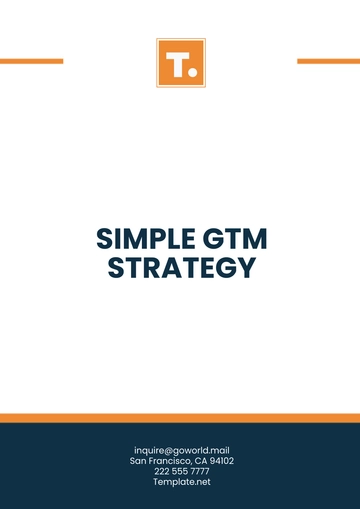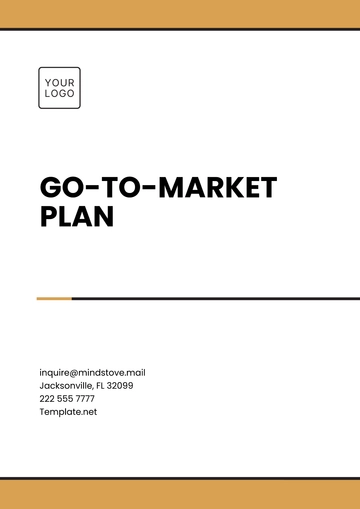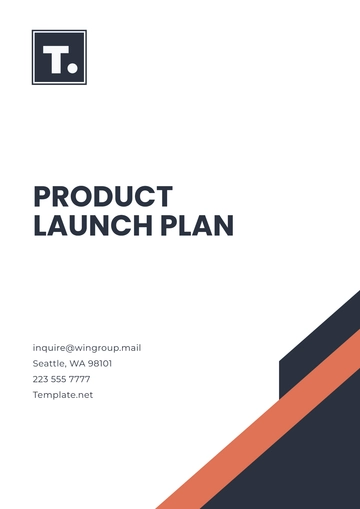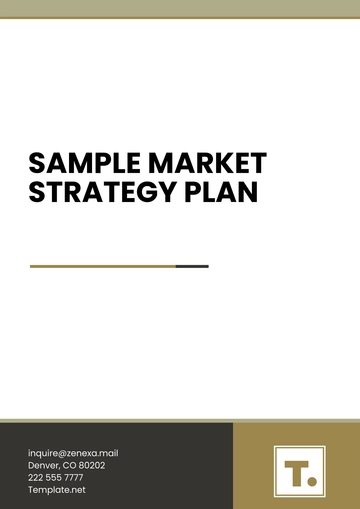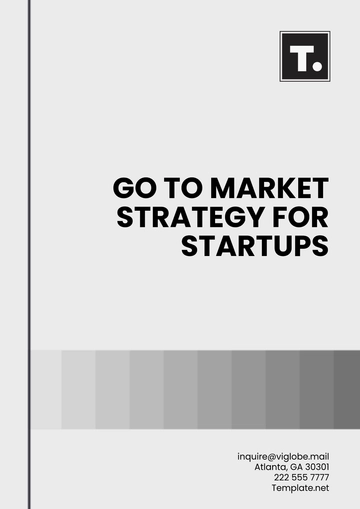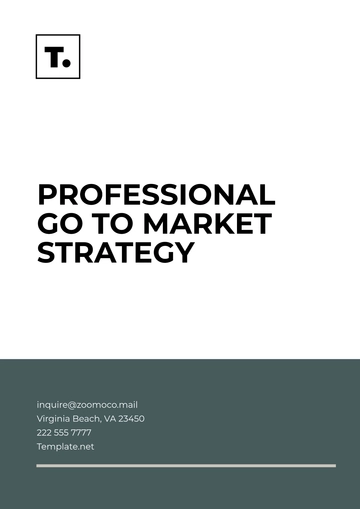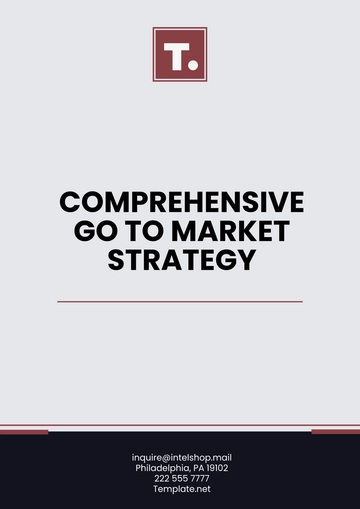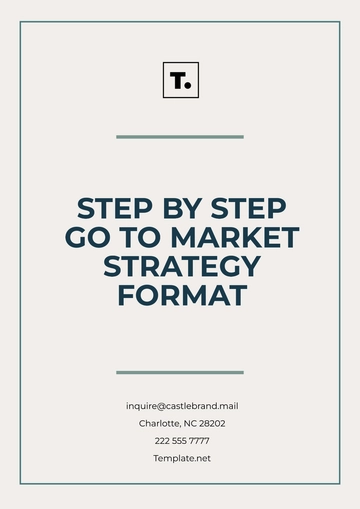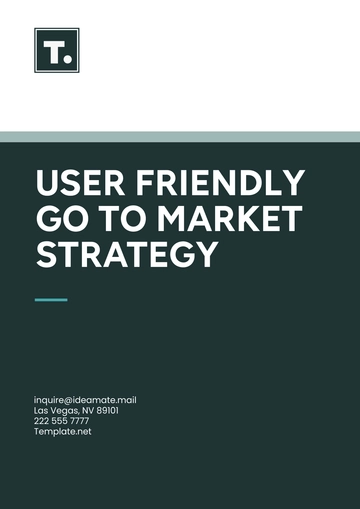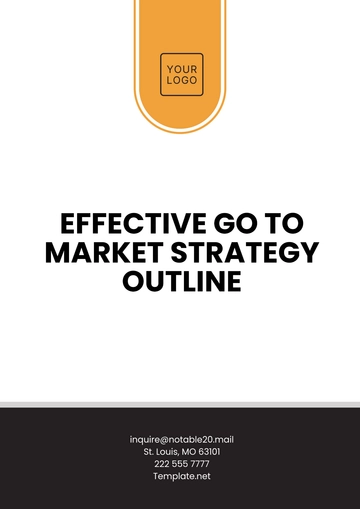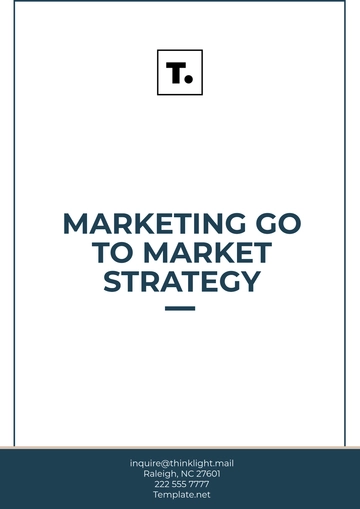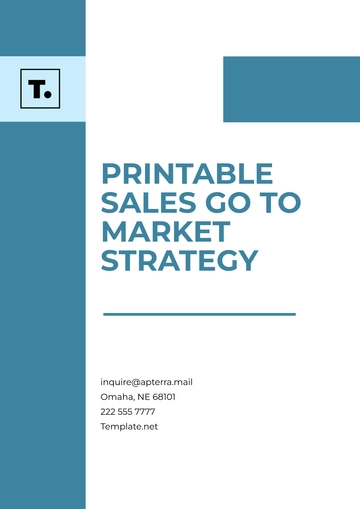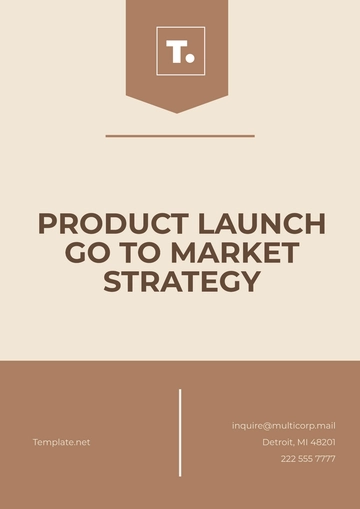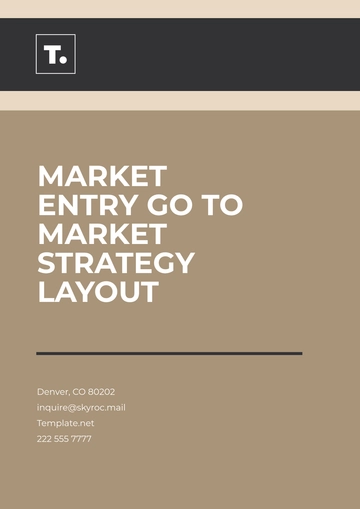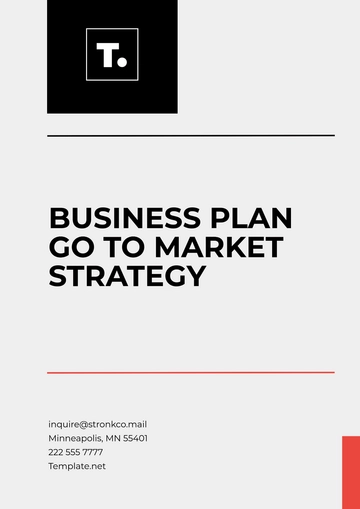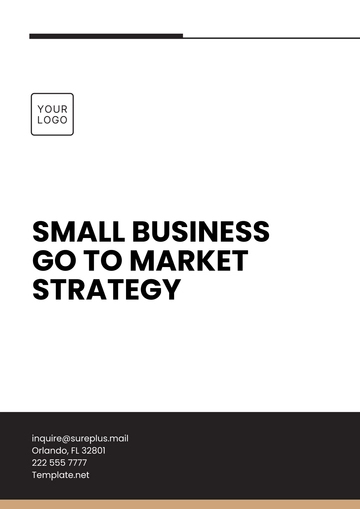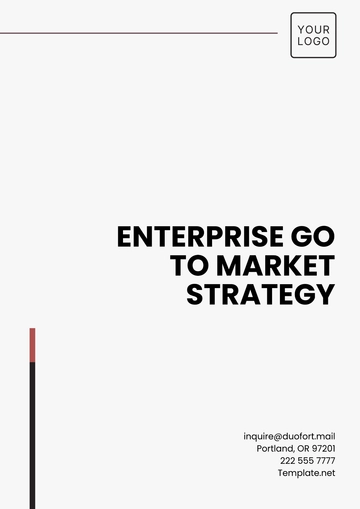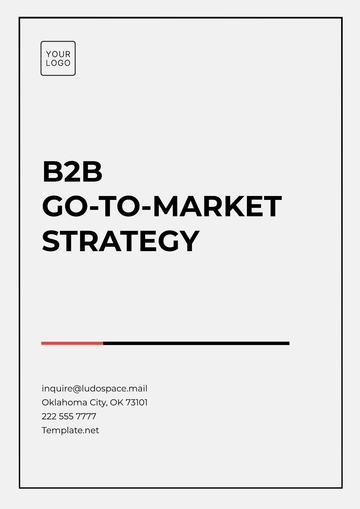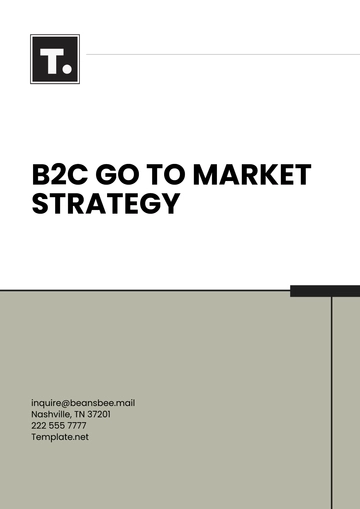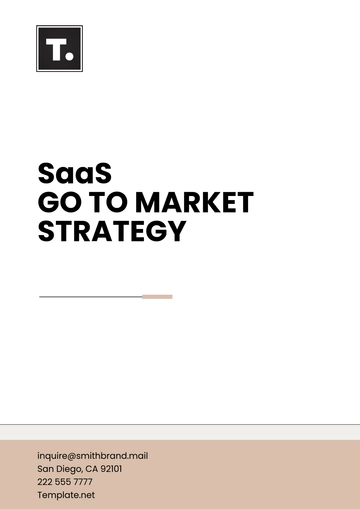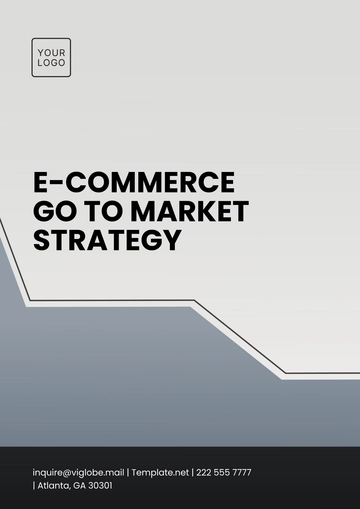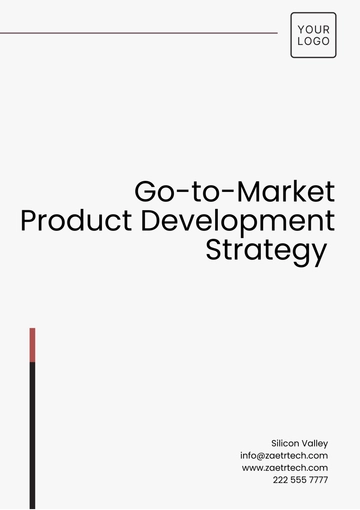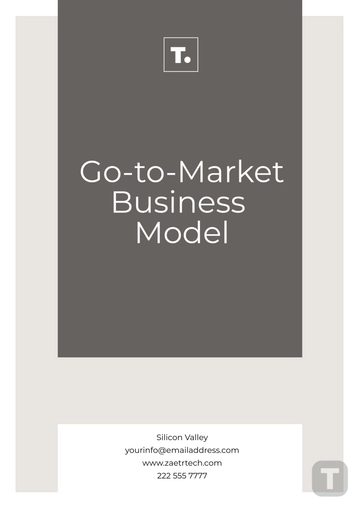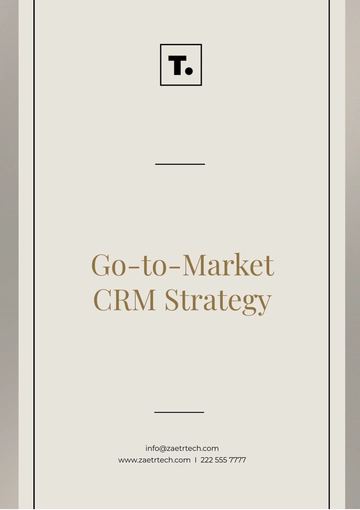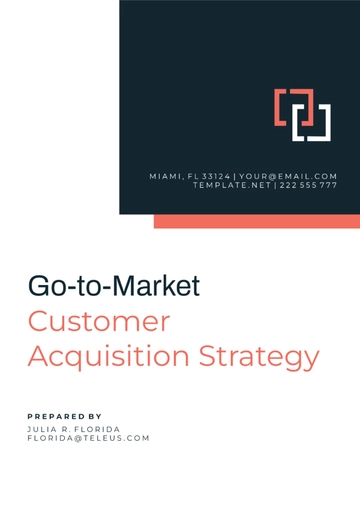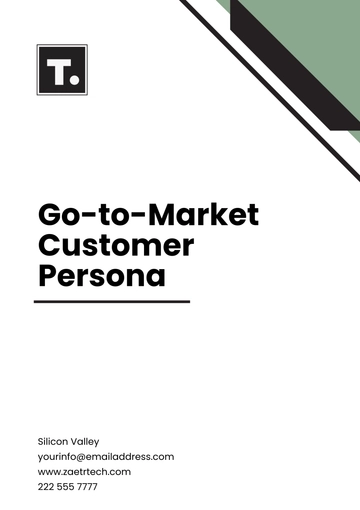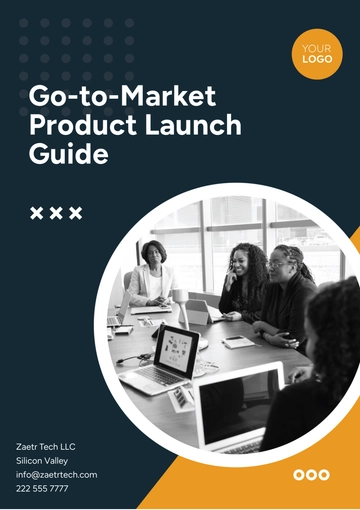B2B Go-to-Market Strategy
I. Executive Summary
In 2050, [Your Company Name] will implement a B2B Go-to-Market (GTM) strategy to effectively engage target markets. This strategy is designed to drive customer acquisition, foster strong partnerships, and establish significant brand awareness using both traditional methods and modern solutions.
II. Market Analysis
The market is evolving rapidly with a focus on:
Demand for AI-Driven Automation Tools in the Enterprise Software Industry.
Rising emphasis on sustainability.
Increased adoption of AI to enhance operational efficiency.
III. Target Audience
Key market segments for [Your Company Name] include:
Customer Segment | Description | Product Fit |
|---|
Enterprise Clients | Large corporations | AI-Driven Automation Tools |
SMEs | Small to medium-sized businesses | Scalable, cost-effective solutions |
Tech Innovators | Startups and tech-driven firms | Cutting-edge, adaptable solutions |
IV. Value Proposition
[Your Company Name] offers:
Innovation: Advanced, future-proof technology.
Customization: Solutions tailored to business needs.
Customer Support: Comprehensive, ongoing service.
V. Sales and Marketing Strategy
Focus on a multi-channel approach, including:
Digital Marketing: Social media, SEO, email campaigns.
Content: Webinars, blogs, white papers.
Sales: Account-Based Marketing (ABM), lead generation, and post-sales support.
VI. Execution Plan
The strategy will roll out in three phases:
Phase | Activity | Timeline |
|---|
Phase 1: Research | Market analysis | Q1 2050 |
Phase 2: Launch | Product launch | Q2 2050 |
Phase 3: Growth | Customer acquisition | Q3 2050 |
VII. Key Metrics and KPIs
Key metrics will include:
VIII. Conclusion
With this B2B Go-to-Market Strategy, [Your Company Name] will drive growth and success in 2050, positioning itself as a leader in AI-driven solutions.
Go To Market Templates @ Template.net

